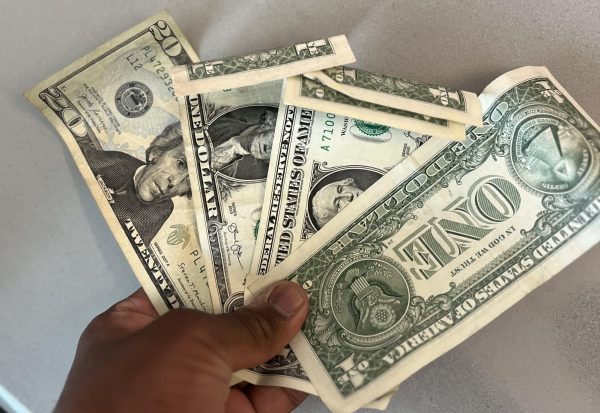Op-Ed: The dangers of gatekeeping
Fandoms of high popularity trapped behind a gate to emphasize gatekeeping
Gaslight. Gatekeep. Girlboss.
Or not.
According to the Urban Dictionary, gatekeeping is when one uses a hobby to make themselves superior by using their knowledge to self-inflate their ego. This is a problem a lot of popular fandoms deal with, which creates a toxic environment.
With the popularity of fandoms like the Marvel Cinematic Universe on the rise, toxic atmospheres are also increasing. Incoming fans may find themselves facing bitter veteran fans, who try to claim their superiority by claiming that they are real fans and newcomers are only trying to hop onto a trend. This is dangerous because it discourages new fans from joining and creates a hostile and unwelcoming environment.
Fandoms such as the Star Wars fan base have been previously called out for racist and sexist behavior, especially in response to the casting of Kelly Marie Tran as Rose Tico. Most leads in Star Wars movies are played by white men, and when an Asian woman was cast as the lead, some fans claimed the franchise was becoming too “liberal.” After Tran was hit with a barrage of sexist and racist comments on social media, she left it. Not only do some fans have bigoted views, but some also claim superiority over newer fans. A lot of gatekeeping also has to do with fans being seen as “fake”, and only claiming to be fans for attention, and because these franchises are gaining popularity. This creates an inherently toxic fanbase and drives people away.
Gatekeeping discourages new fans, but new fans bring more demand for inclusivity. The MCU has slowly become more and more diverse in its characters. A more recent example would be Ms. Marvel, aka Kamala Khan, played by Iman Vellani. She’s the first Muslim Pakistani girl in the franchise. If it weren’t for the push of newer and younger fans and its increasing popularity, there would only be one major demographic watching, and all the characters would stay the same. New fans entering new fan bases increases the amount of diversity in a fandom.
Unfortunately, a lot of gatekeeping is directed toward female fans. The all too familiar line of questioning that somehow determines that you’re not a real fan unless you can name every single comic or remember every single detail in every minor scene is seldom asked of male fans. Similar to other parts of our life, as women we find ourselves having to justify our love of these often male-dominated fandoms. These views are steeped in misogyny and, quite frankly, don’t make sense. It shouldn’t matter why someone is a fan, because at the end of the day we’re all trying to enjoy the same content and should be supporting our fellow fans, not tearing them down.
However, some say that gatekeeping is not a bad thing, but is actually necessary. Some old fans despise the idea that they were made fun of for liking these types of entertainment, and now it’s popular so it’s not seen as “weird” to like it. “Nerd culture” used to be demonized and big franchises like the MCU and Star Wars were a part of this culture, but now they are more mainstream. Gatekeeping can also be used to stop toxic fans from spewing hate toward other fans or actors playing their favorite characters. In the example mentioned about Kelly Marie Tran, gatekeeping could’ve prevented those “fans” from harassing Tran. If gatekeeping only affected toxic fans it would exclude them from discussions on that particular franchise and prevent any hurtful comments on topics like the diversity of a franchise.
There is no real end to gatekeeping. Someone will always think they are better than other fans just because they’ve been a fan longer or like it for the “right reasons”. However, we should remember that regardless of the reason or how you found yourself in a fandom, everyone has the right to enjoy what they like and nobody should stop them from it. As fans, we should make sure that our fan bases are inclusive and don’t ostracize others.
Your donation will support the student journalists of Carnegie Vanguard High School. Your contribution will allow us to cover our annual website hosting costs and fund field trips, competition fees, and equipment. We appreciate your support!

Sakina is a junior student at CVHS, she has basically traveled around the world where she has traveled across the country as well as out of country such...







Sumedha Mohanty • Dec 13, 2022 at 8:28 pm
I love how you decided to start off the op-ed.
Audrey Piczak • Dec 13, 2022 at 10:28 am
Love this. Gatekeeping is not girlboss
Danielle Yampuler • Dec 13, 2022 at 10:13 am
Super great story, very relatable as a woman who’s been involved in fandom for a while <3
Naadiya Walji • Dec 13, 2022 at 10:12 am
I really like your feature image and how you started with gaslight gatekeep girlboss. good job!!!